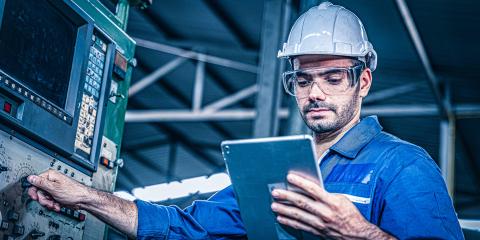Workable work, the future of companies and people

Workable work, the future of companies and people
That the industry labour market is changing rapidly and shortages are increasing is no secret. In our recently released white paper, we substantiate that an ageing workforce and a declining number of people in work requires action and a clear strategy, both at individual companies and industry-wide. In the podcast episode "Workable Work, the future of business and people", Marc Engels and Dirk Torfs of Flanders Make share insights on how these demographic shifts are challenging businesses and societies. They argue that we are moving from a situation where we need to create jobs for people to one where we need to find people for existing jobs. Dirk explains, "It is closer than we think. In the current situation, we have to be inventive to maintain production and increase productivity. That means we need different resources than we use today. And in that sense, I think people are going to have a different role in production. It's going to be more challenging, it's going to be more workable for them and it's also going to ensure that they can work longer."
Technology as a solution
One of the solutions put forward to deal with the shortage and ageing population is to create workable work by using technology, such as digital work instructions and robotics. These technologies can reduce workers' cognitive load by providing real-time information and guidance. They can also reduce physical strain by introducing exoskeletons and ergonomic aids, for example.
Autonomy remains important
A crucial aspect of workable work is maintaining workability while increasing productivity. This includes shifting the focus from tasks and productivity to employees' well-being, competences, and autonomy. Self-managing teams and better task allocation are mentioned as ways to give workers more control over their work and improve work-life balance.
The conversation also focuses on the ethical aspects of technology in the workplace, including privacy issues and the need for open consultation with employees.
Benefits of workable work and a little preview
In the conversation, Marc and Dirk stress that the benefits of workable work are not limited to employees; employers can benefit from higher productivity, better product quality and more flexible and sustainable production.
They also cautiously look ahead to the next step in workable work. Marc explains: "Currently, tasks are assigned to people in a fairly pragmatic way, often still using spreadsheets. That sometimes takes into account alternating work, but there is no link to work where he or she also maintains his competences(...). Do you also have cognitive periods that are a bit more and less stressful that you can alternate? You could do that by optimising a computer programme designed for that purpose. And that is precisely the research we have now started, so taking into account not only productivity but also the well-being of the employee and his competences. That is a newly started research and we expect a lot from it."
More information?
Do you want to know more about the future of work and how we can shape this future for a better balance between productivity and well-being? Then listen to the podcast Workable Work, the future of business and people.
Do you want to know more about the state of the labour market and Flanders Make's vision for coping with the coming shortages and ageing population? Then read our recently released white paper on the subject.
